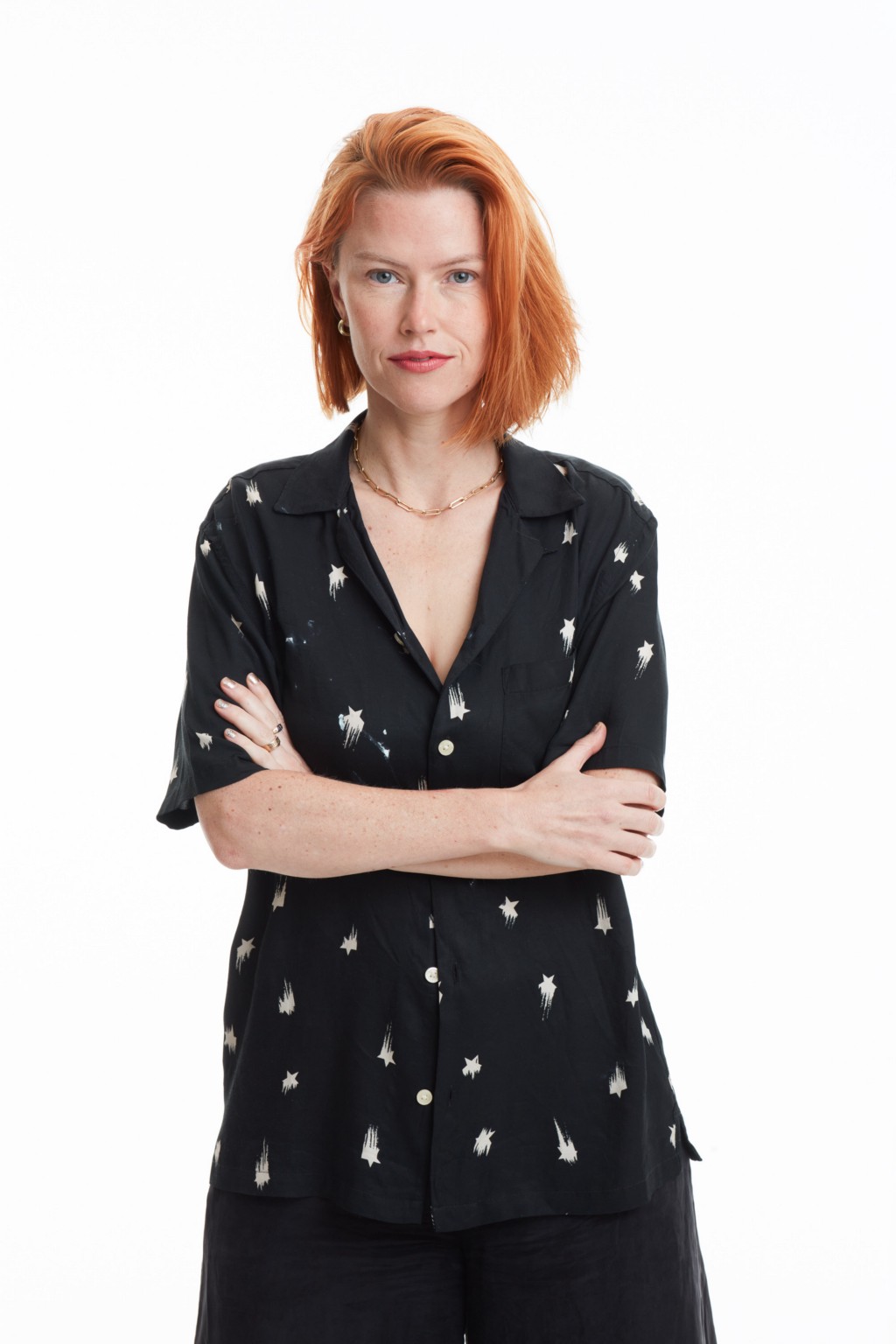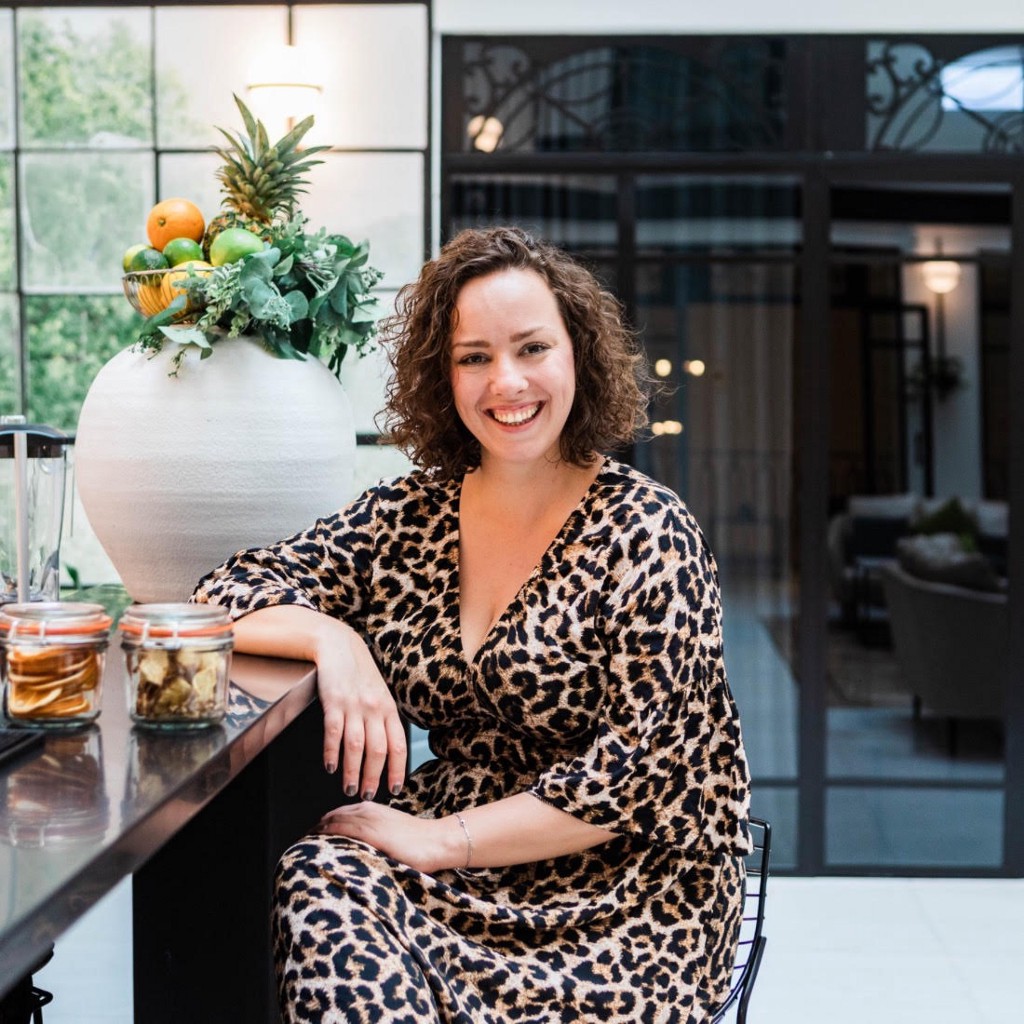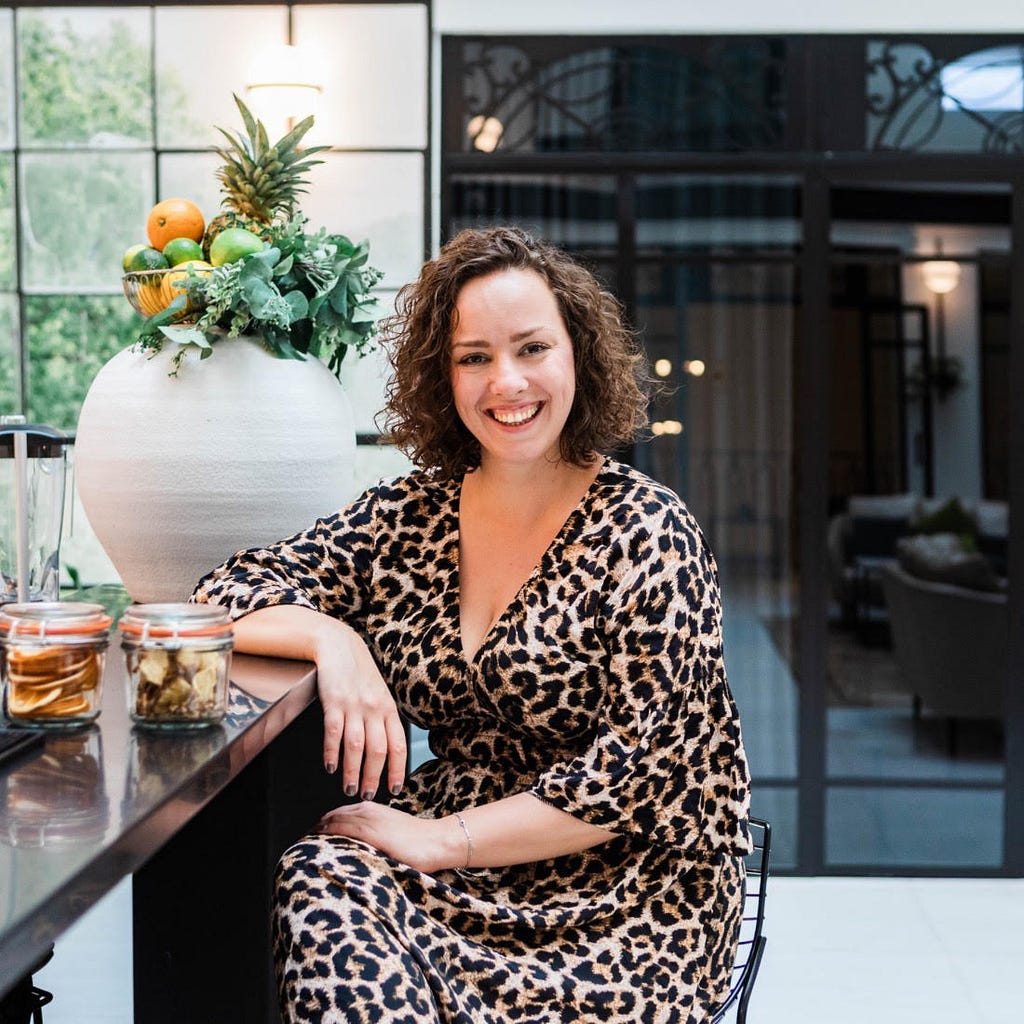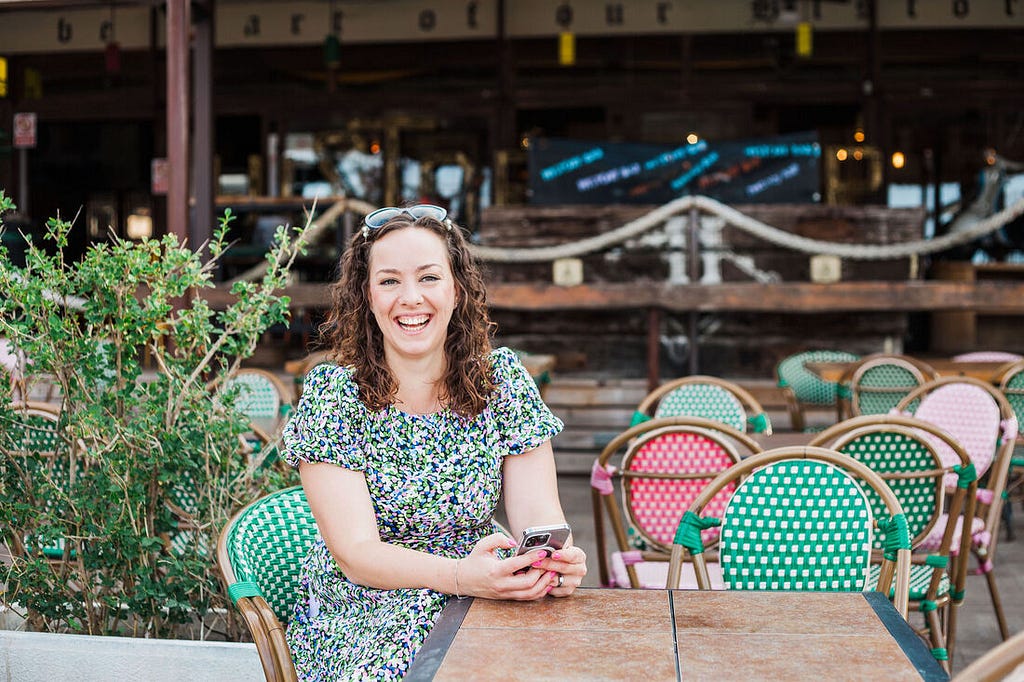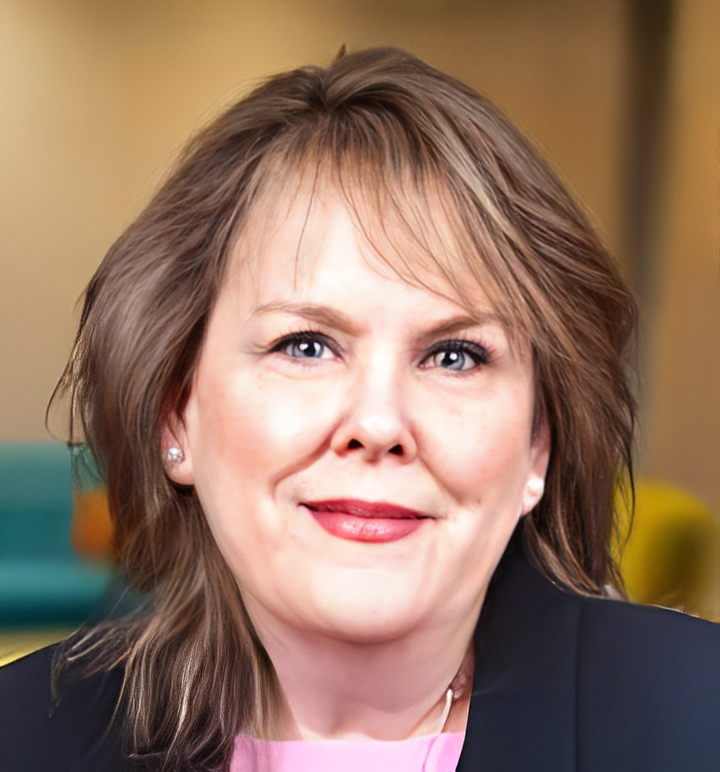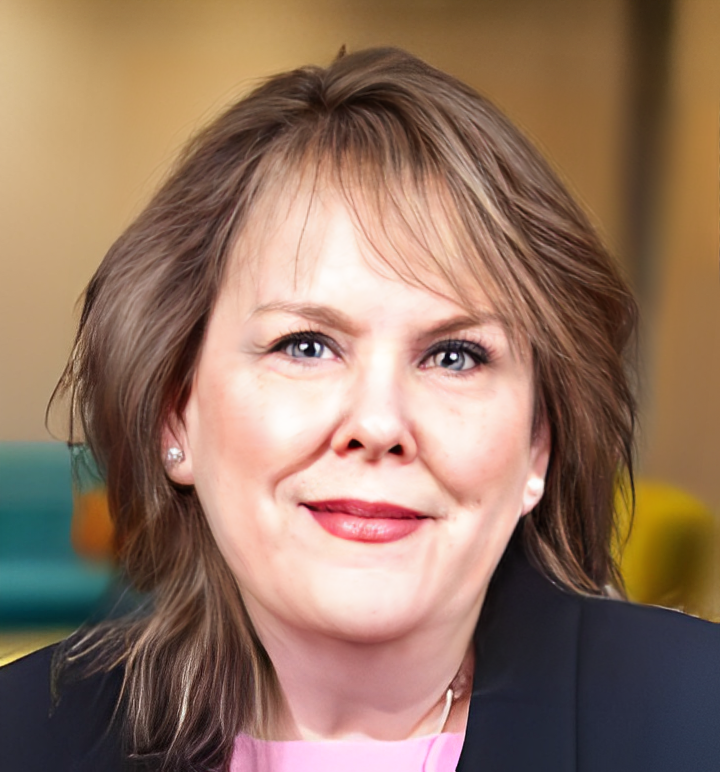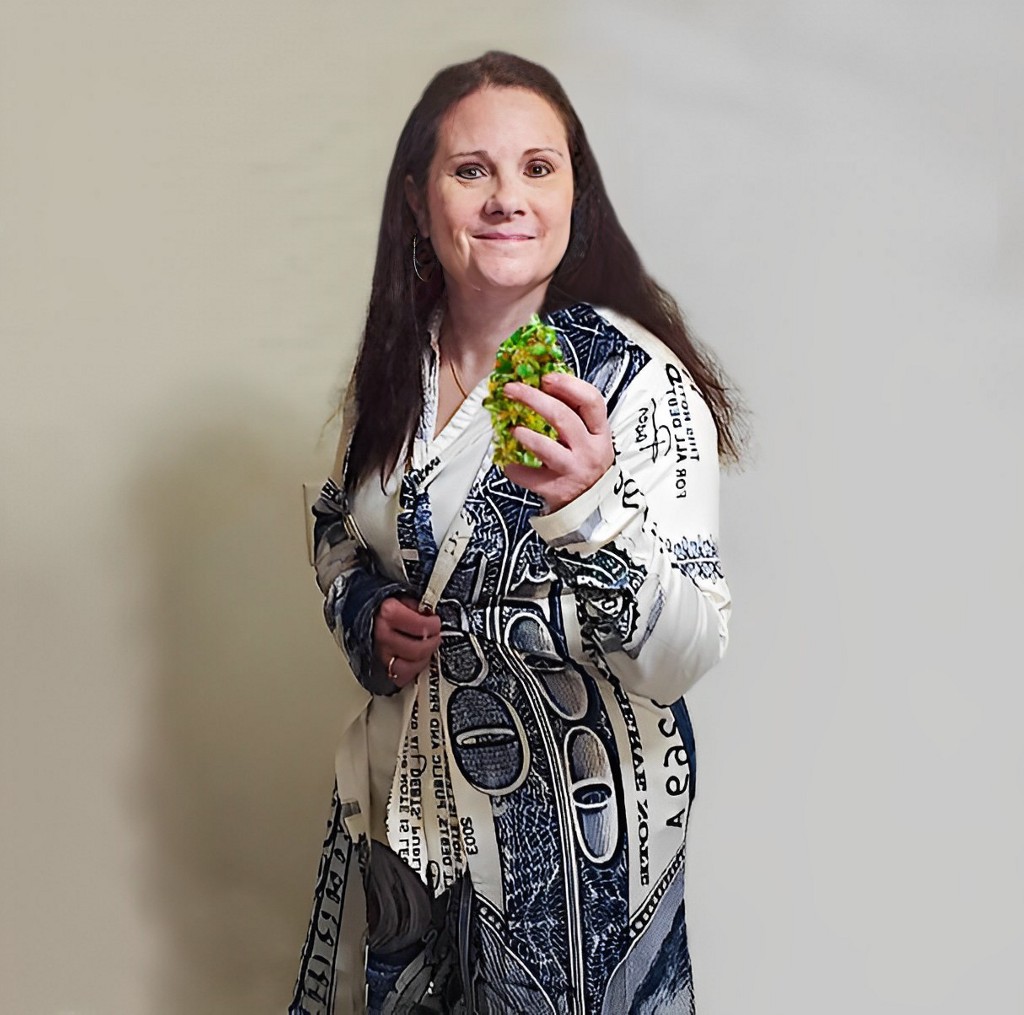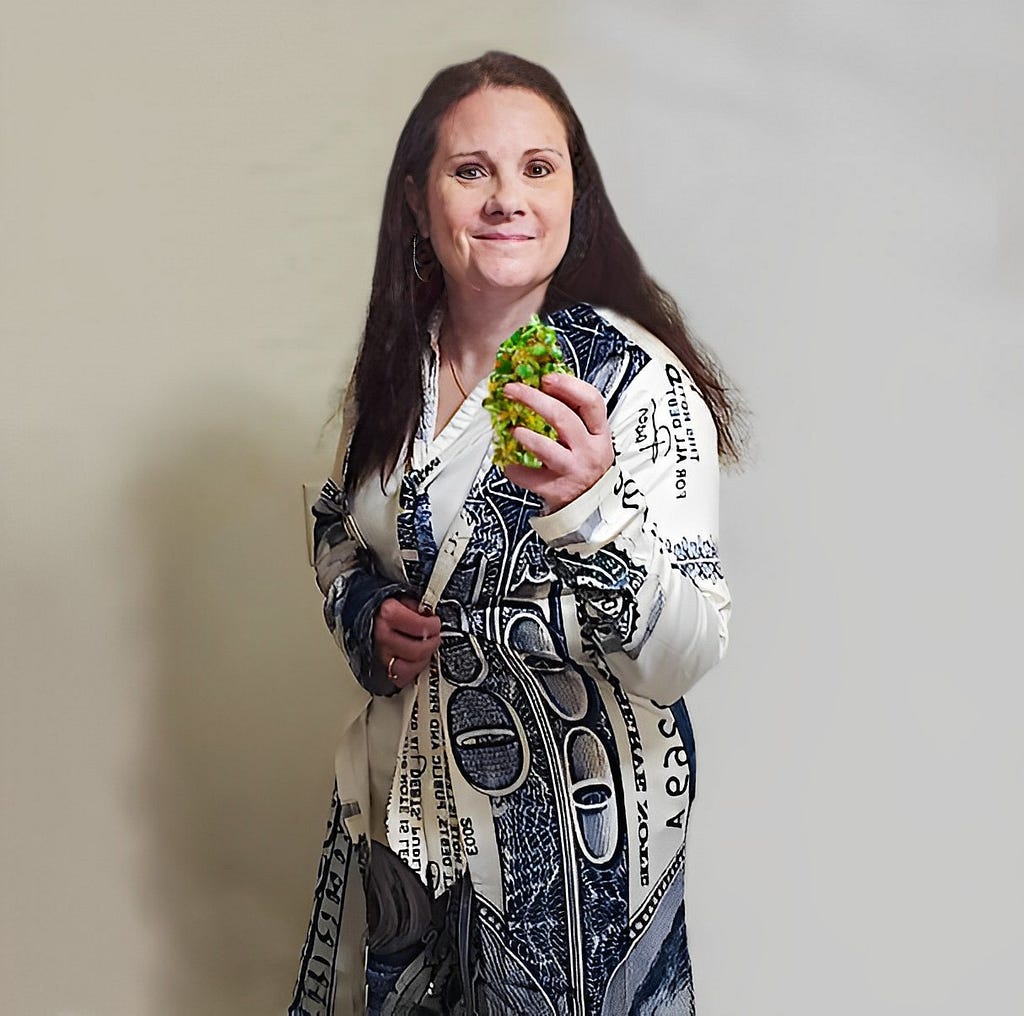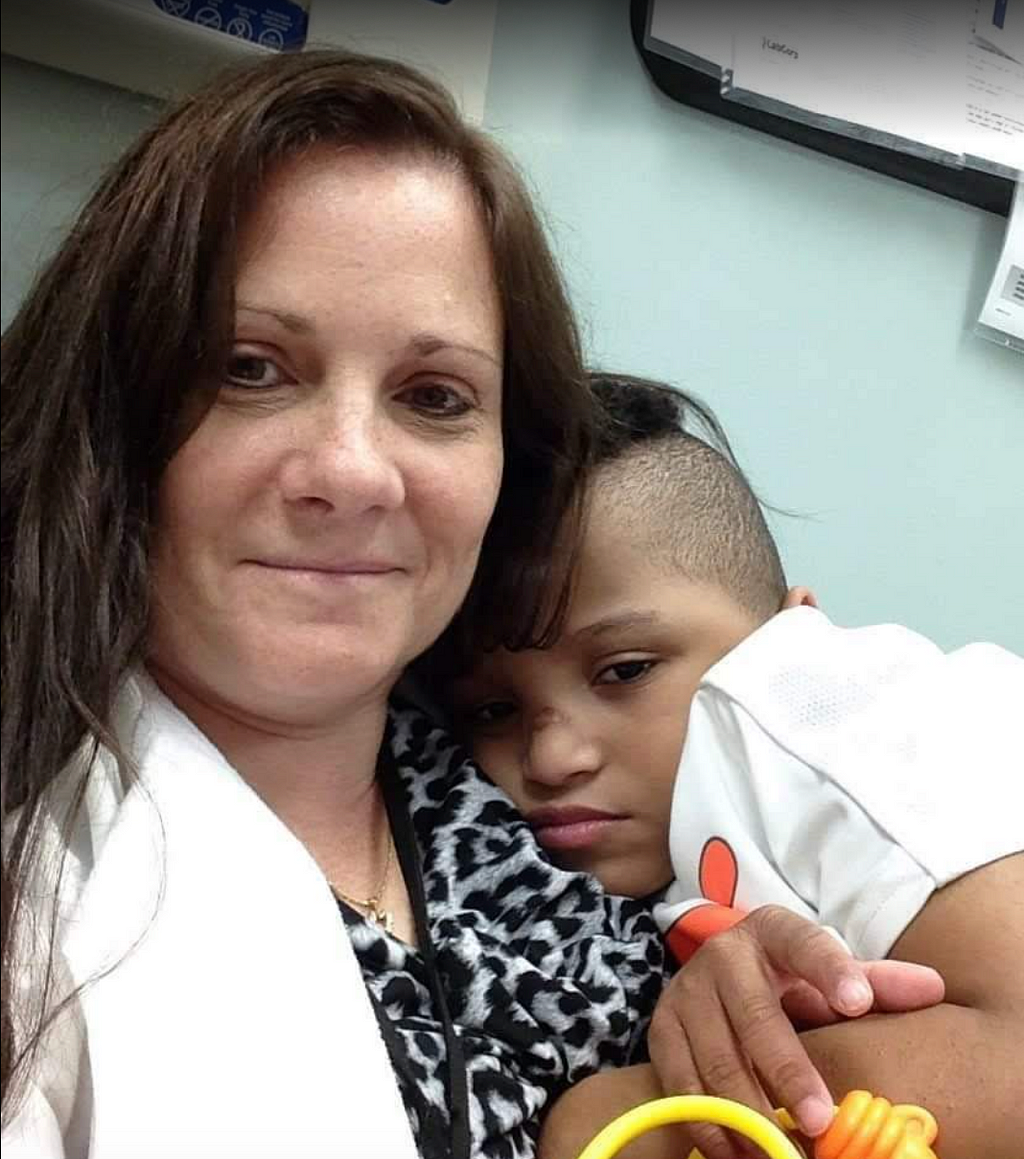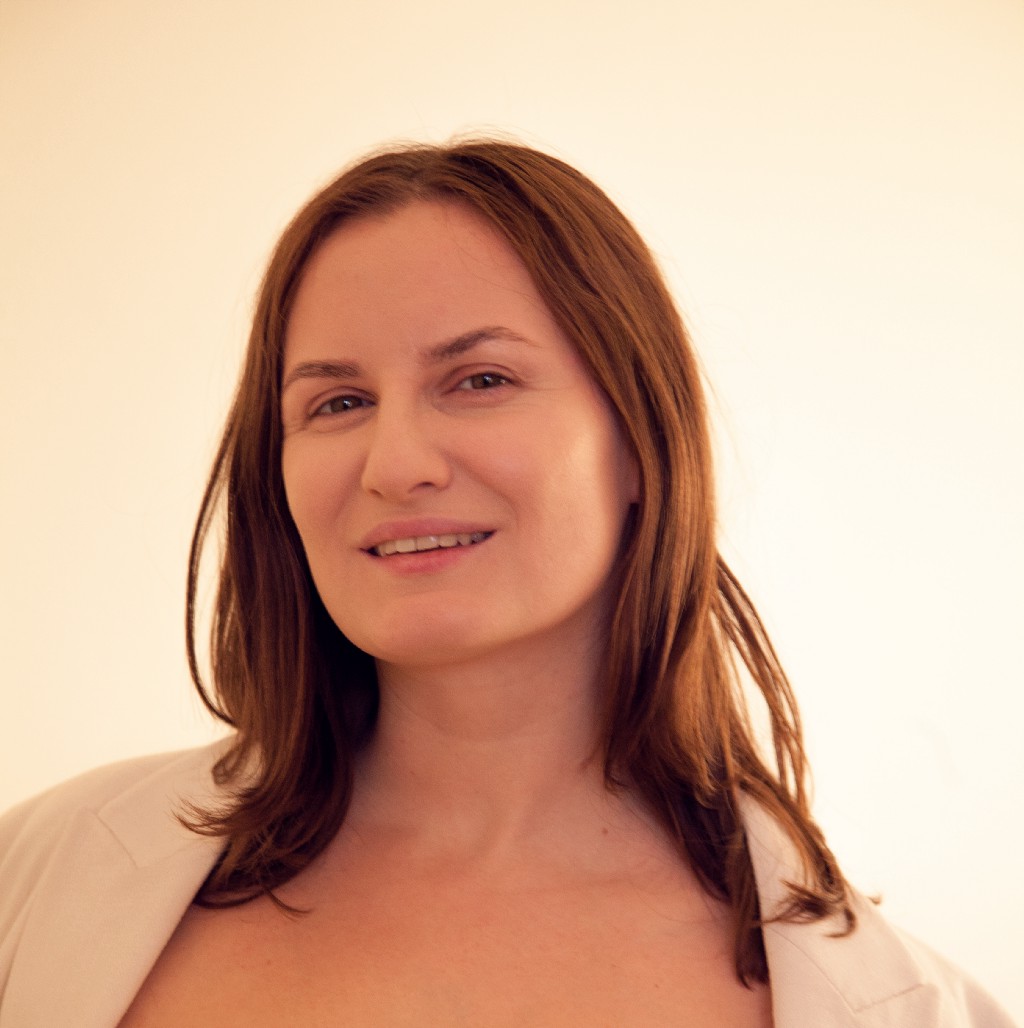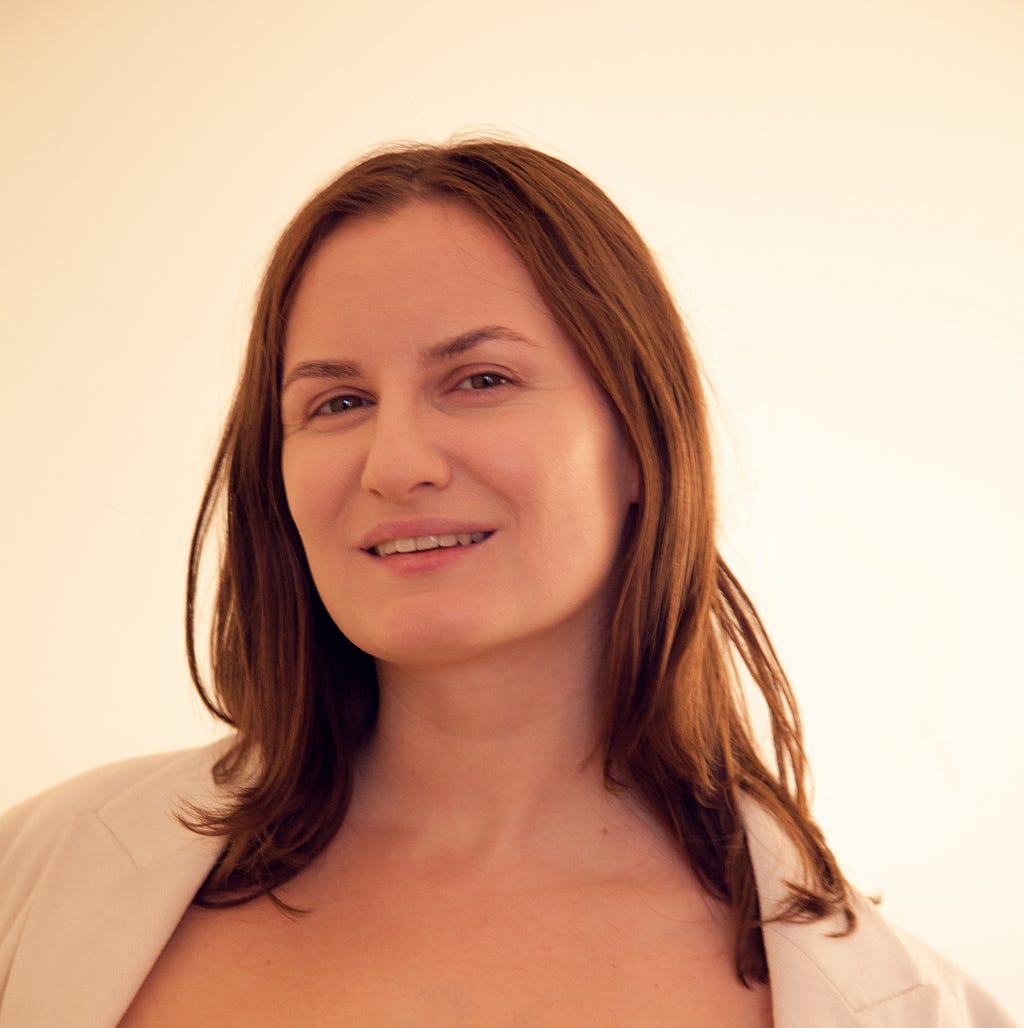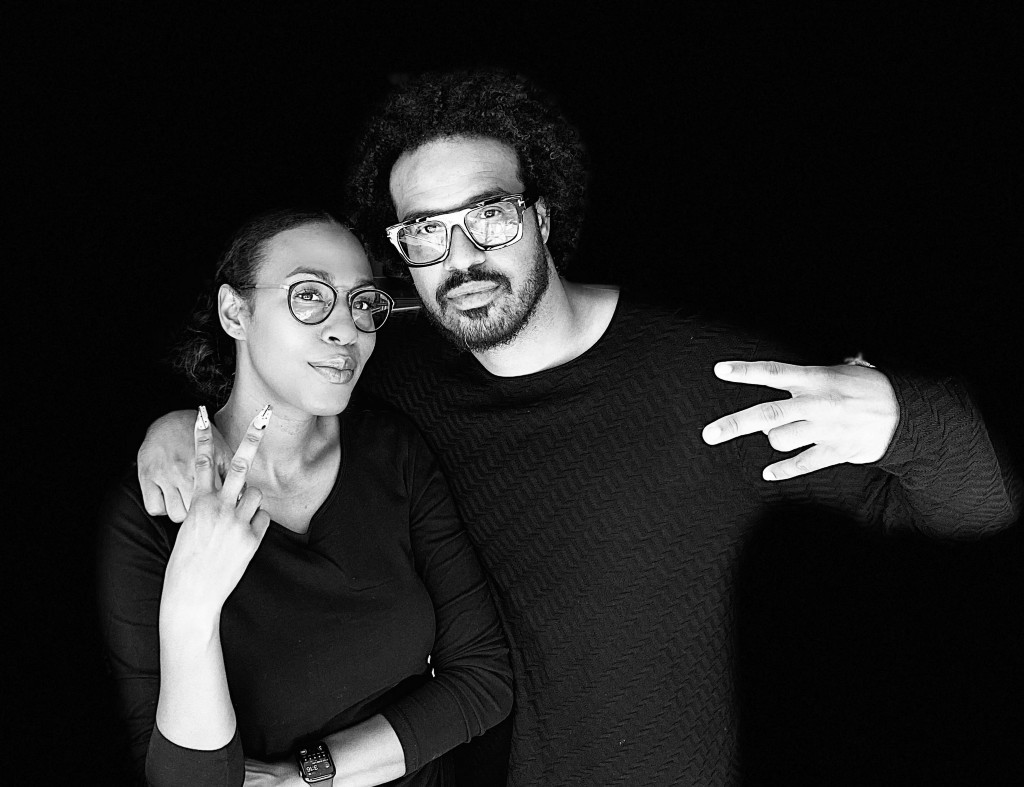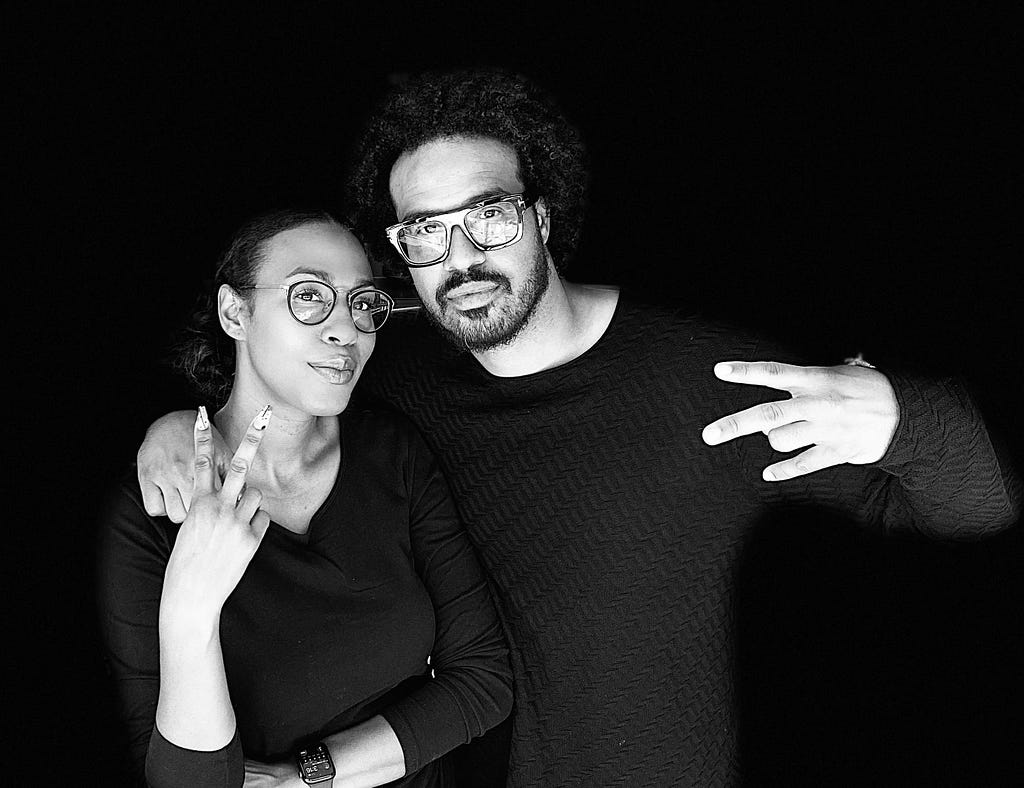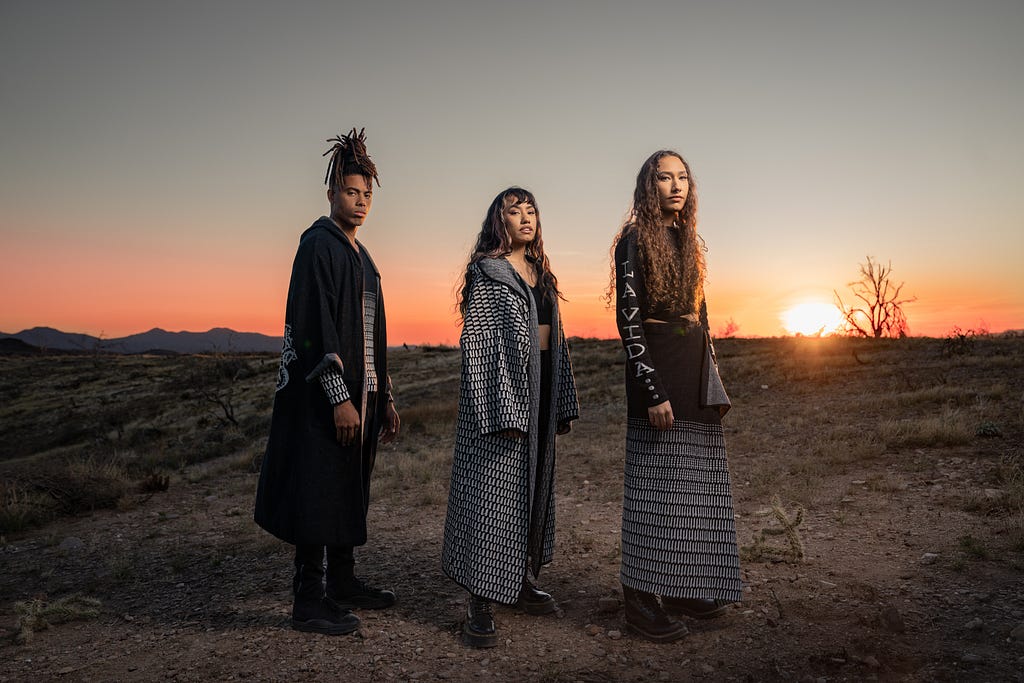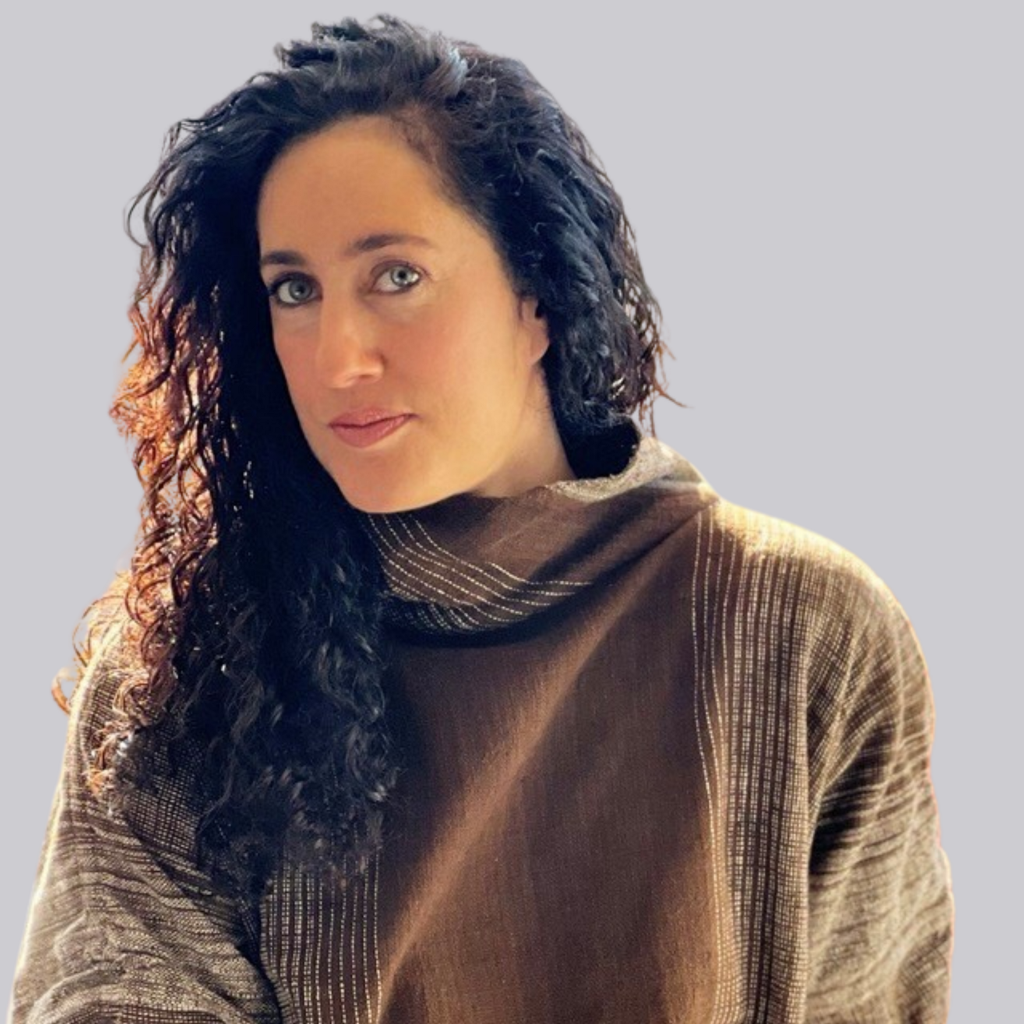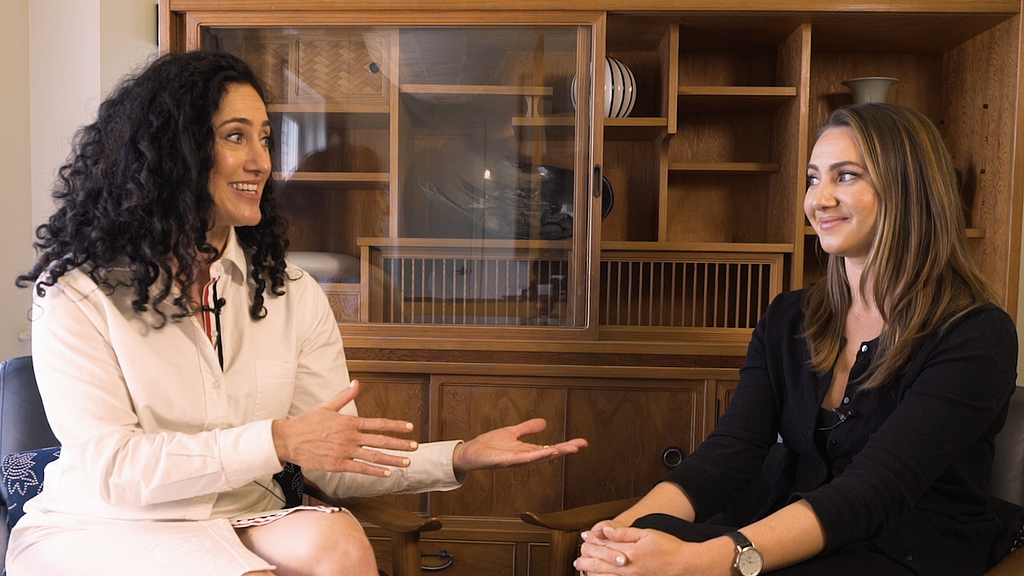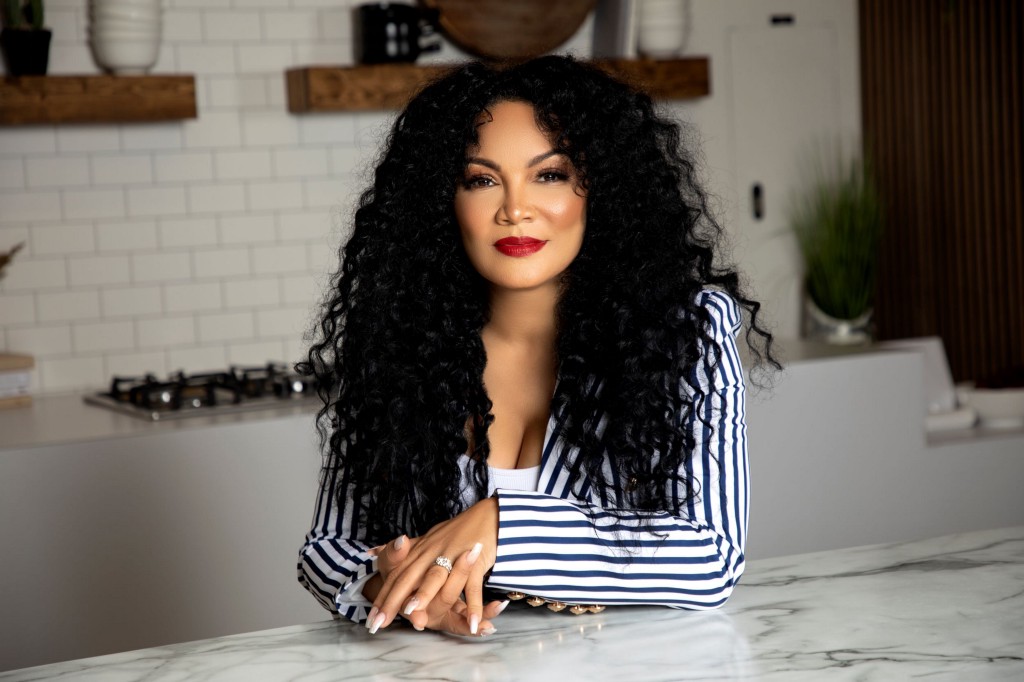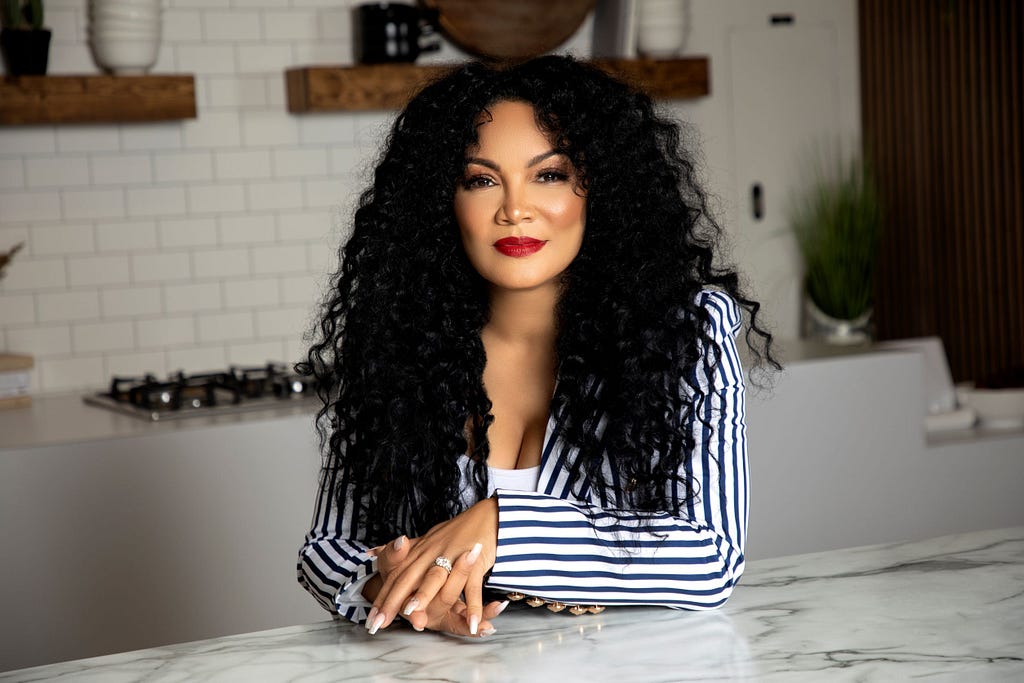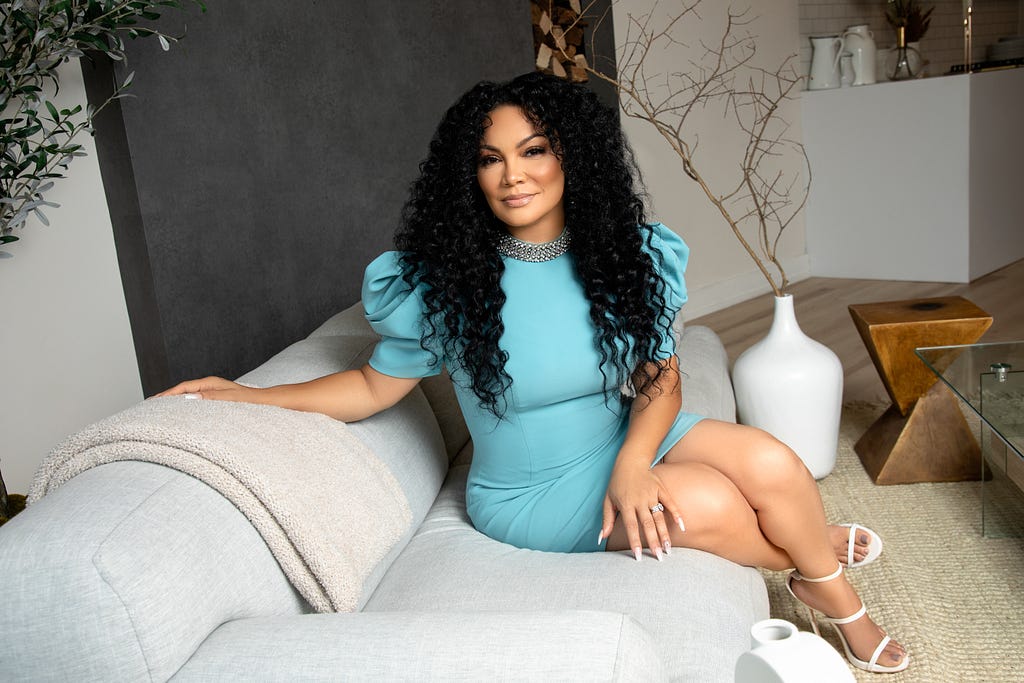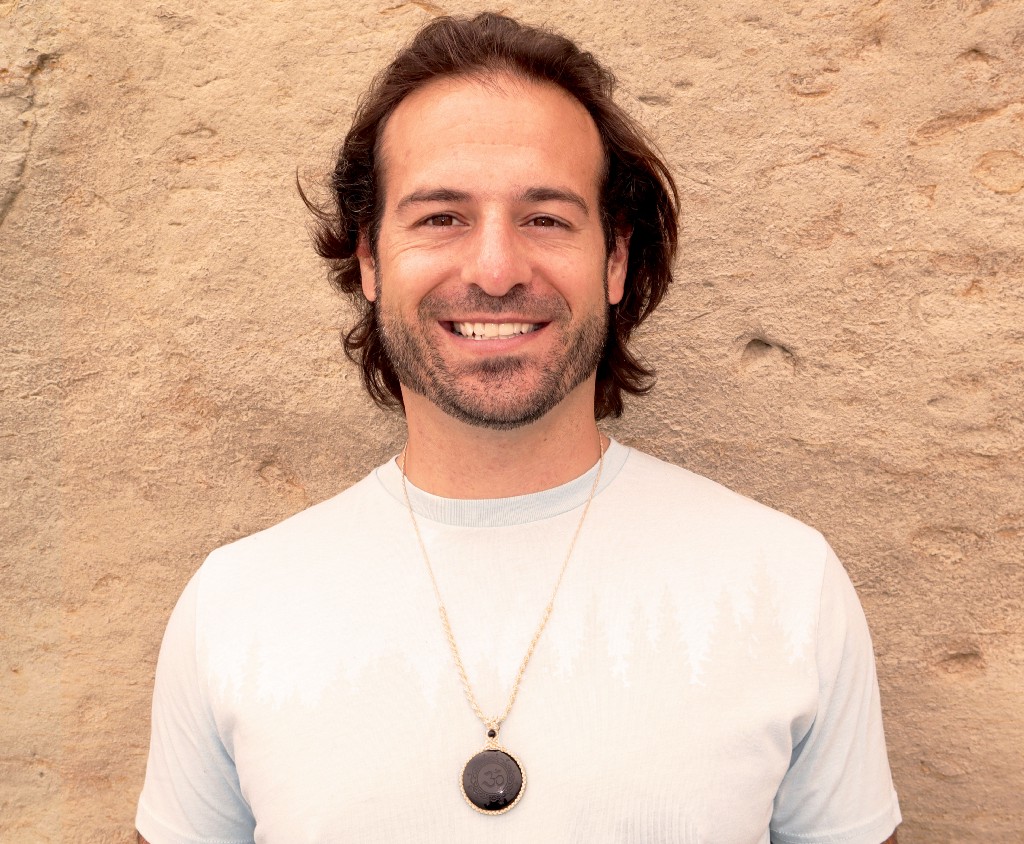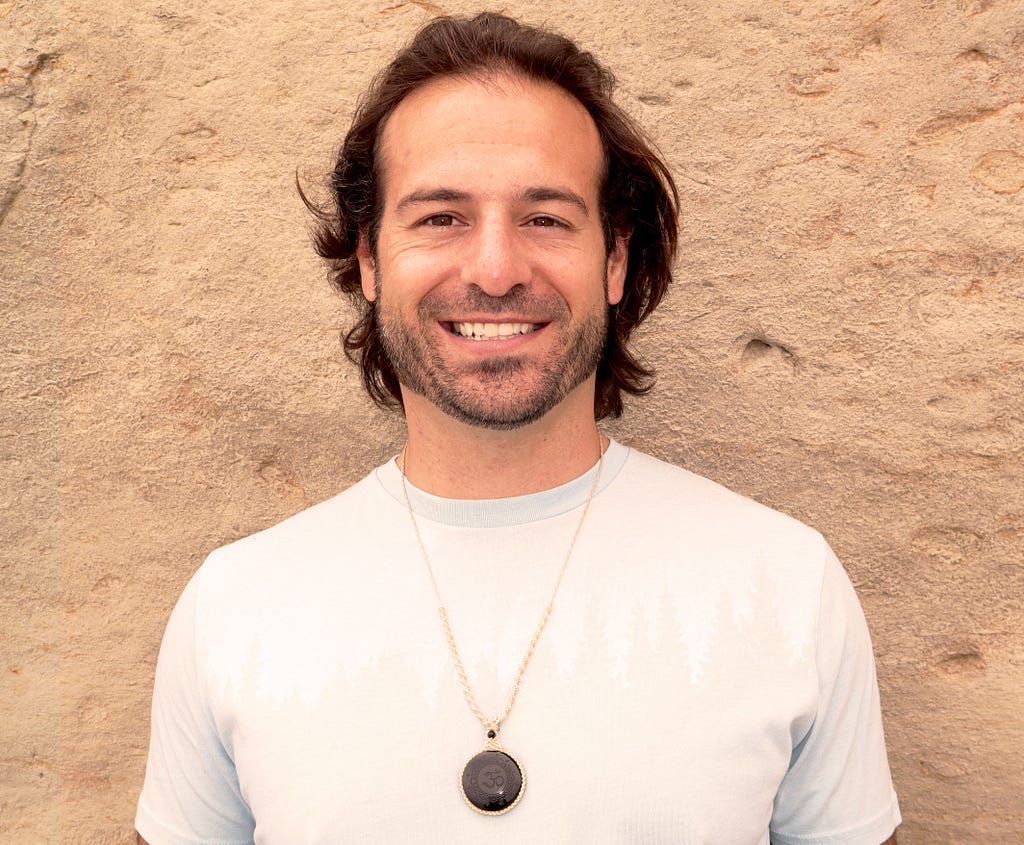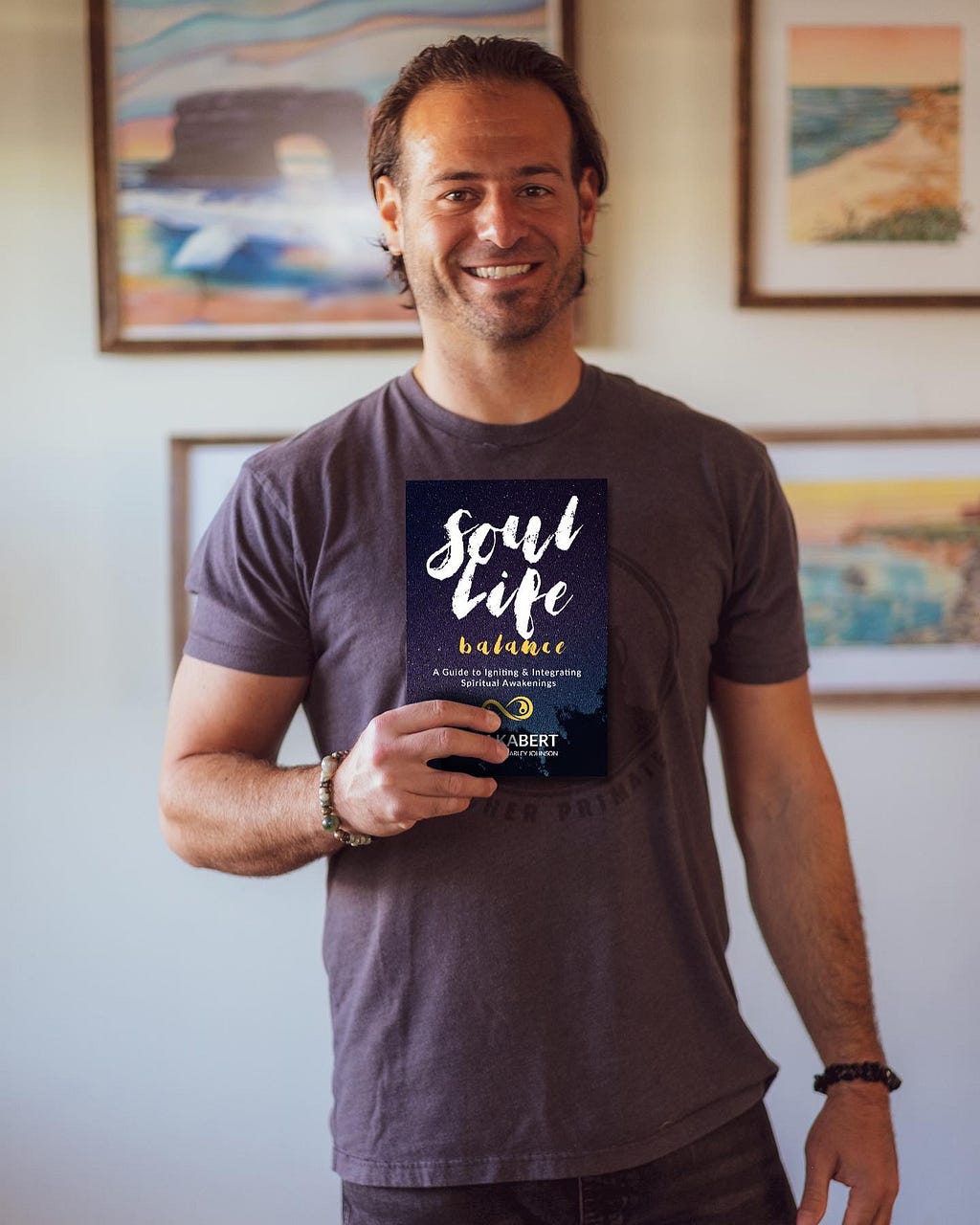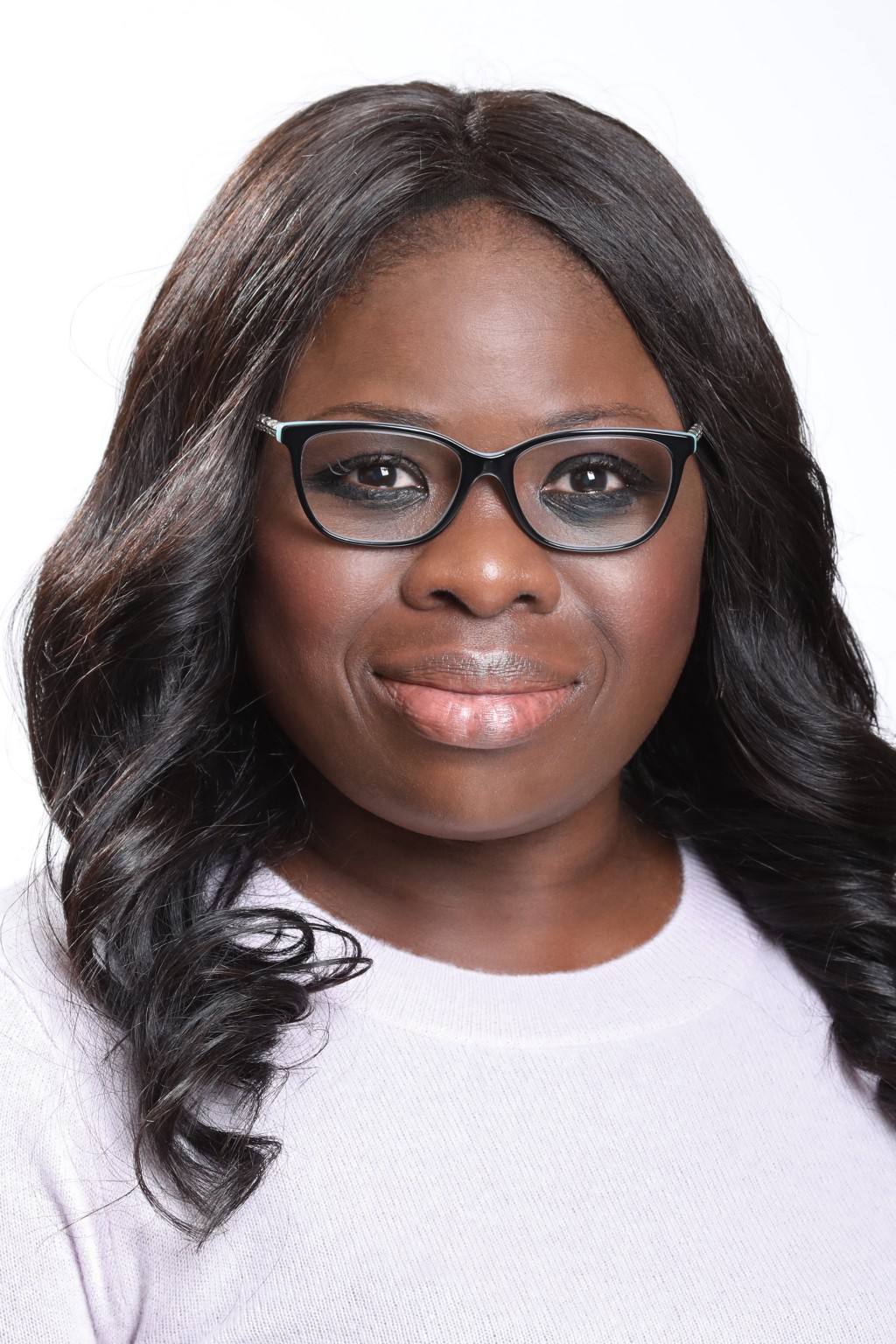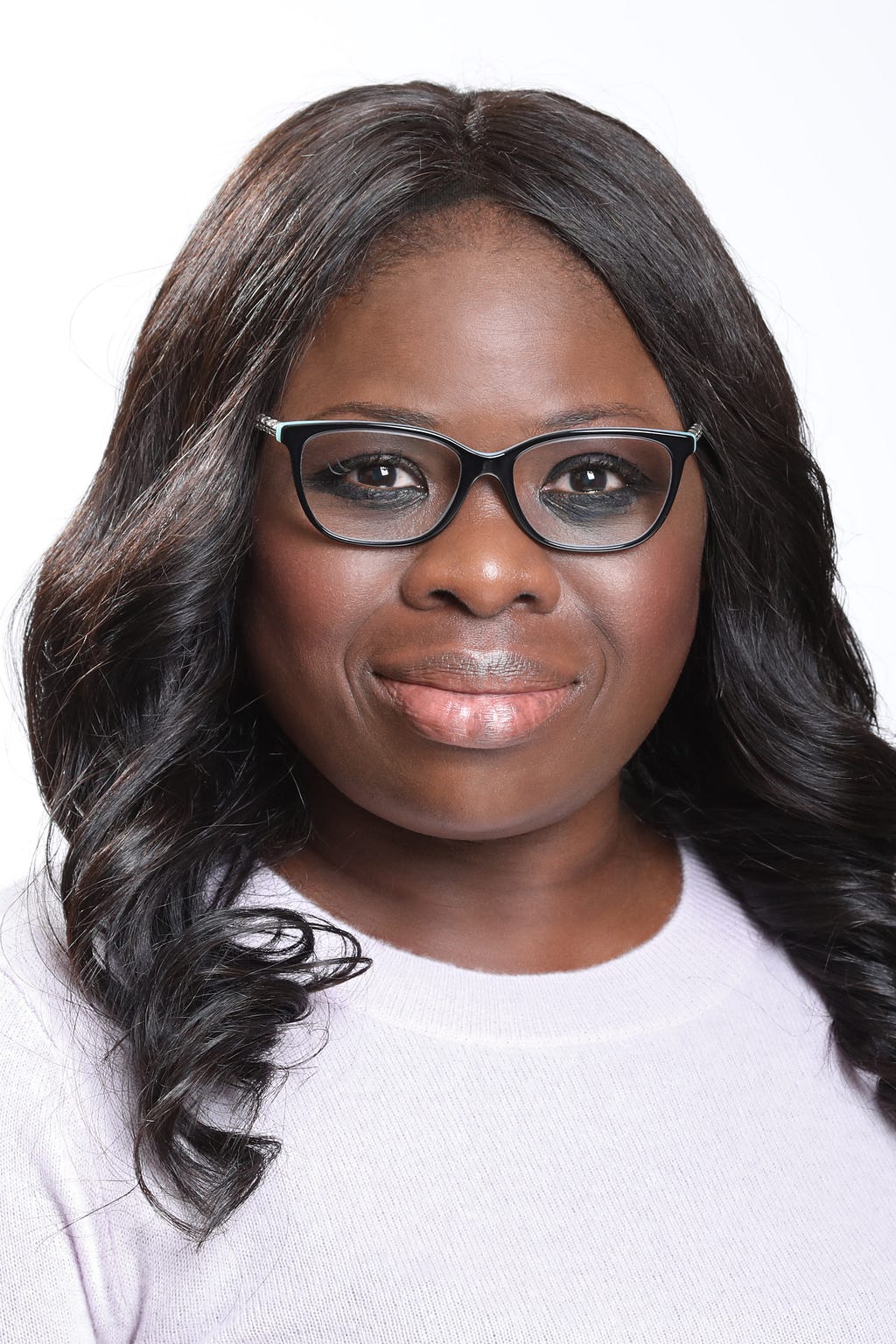Female Disruptors: Ariél Saint White of Saint Studio On The Three Things You Need To Shake Up Your Industry
An Interview With Candice Georgiadis
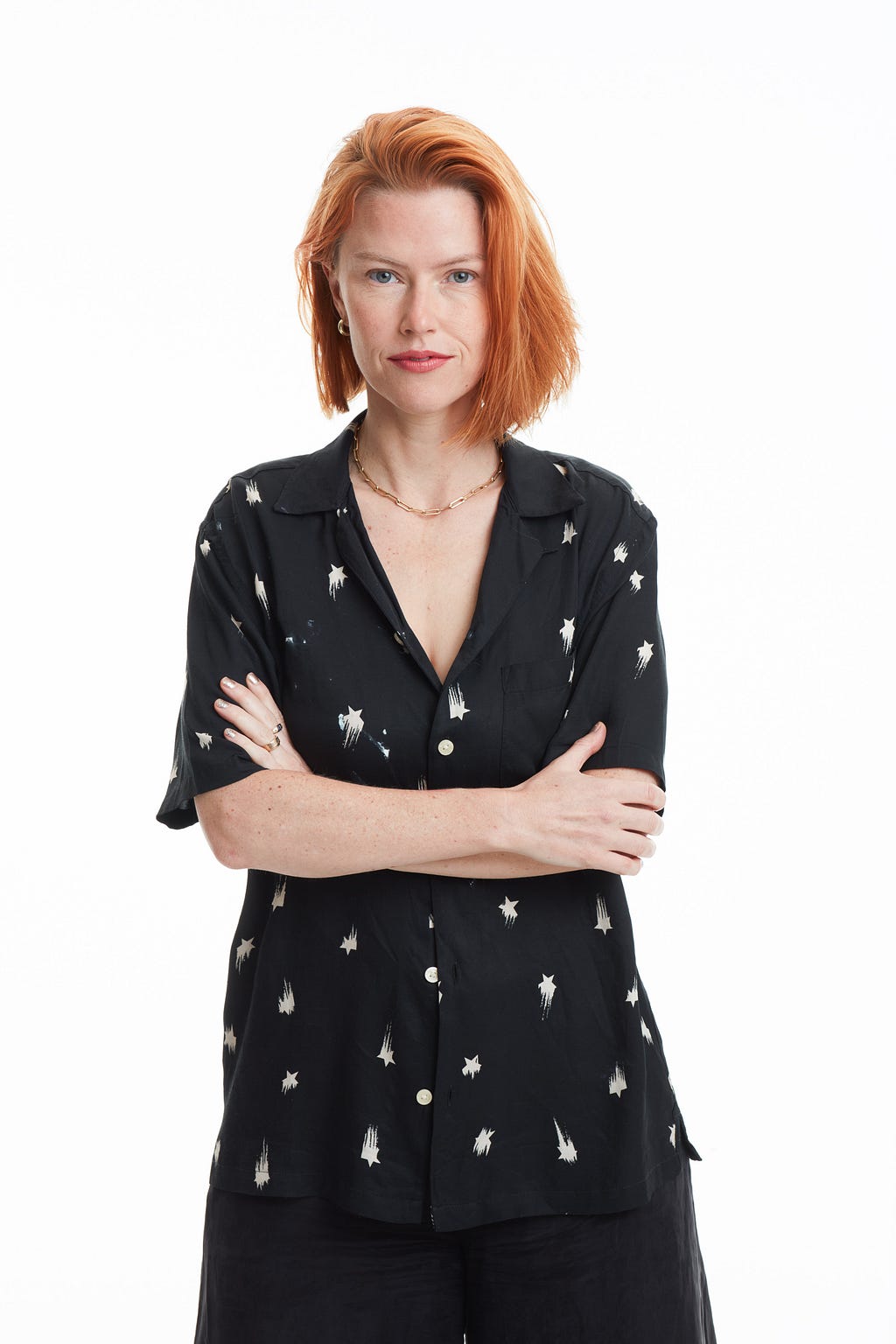
“Give where received.” — We might bang against closed doors rather than pouring our energy into people and places that are eager and grateful to receive what we have to give. Don’t waste your time on people, places, or projects that aren’t readily grateful for what you uniquely have to give. Giving or trying to give when someone can’t receive isn’t giving at all, it’s draining for you and can even feel oppressive to the other.
As a part of our series about women who are shaking things up in their industry, I had the pleasure of interviewing Ariél Saint White.
Ariél Saint White is a multidisciplinary artist, author and CEO of Saint Studio. Known for her collaborative art series, Love Saints, Ariél’s work has been featured on OWN and commissioned by global luminaries.
Ariél’s passion for breaking down taboos led her to found sex-education organization ‘My Little Yoni’. Partnering with top OBGYNs, she authored a 10-book series giving parents & kids medically accurate, body-positive education that is lauded by parents for making ‘the talk’ easier and fun. With an eclectic background spanning everything from somatic practices to theater production, photography, creative direction, entrepreneurship, investing and song writing, Ariél delights in tackling projects that forge daring new intersections between technology and the natural world.
Ariél has been featured in several publications including Entrepreneur, OWN, Brit+CO, International Business Times, and Latina. She currently resides between Miami and Montana with her family.
Thank you so much for doing this with us! Before we dig in, our readers would like to get to know you a bit more. Can you tell us a bit about your “backstory”? What led you to this particular career path?
I have always been an artist. I grew up playing classical music and writing songs. I didn’t watch TV as a kid and spent a ton of time alone, in nature. Throughout high school, I was a performing artist focused mainly on theater. I was in a touring Shakespeare theater company, and everyone assumed I would pursue theater professionally. I finished high school early and landed a position at the Z Space theater and performing arts company in San Francisco. Here, I had the honor of working with some incredible directors and the legendary monologist, Josh Kornbluth.
Then, out of left field, I pivoted to study healing arts. This was thanks to my godmother taking me to the Esalen Institute and training with Ilana Rubenfeld, a Juilliard educated symphonic conductor, who developed her own method integrating talk therapy and touch. Finding Eslaen felt like discovering Hogwarts; I kept thinking, “You mean magic is real?!” I trained at the institute as often as possible and within two years, began assisting workshops there. Instead of San Francisco, I settled in San Diego with the goal of learning to surf. Within days of arriving, I was part of an underground, vintage longboard surf gang, paddling past exhaustion at the Sunset Cliffs, just trying to keep up with the guys. The ocean proved to be one of my greatest teachers; it’s probably the most powerful symbol for the unconscious — vast, full of things that may cause irrational terror– but if you can breathe and stay present, you might get lucky enough to catch a wave…
As I got deeper into energy healing, I realized that theater had prepared me well — because great performance is ultimately a ritual — an opportunity to step out of ordinary reality and to create a space of presence. A similar skill is required to facilitate healing. In Ancient Greece, theater was used to enact ritual rites, not merely for entertainment but in order to access wisdom that lay beyond ordinary realms of consciousness. In theater, the more you can get out of the way and be a conduit for a particular energy or character or idea to come through you, the more powerful the performance.
For a couple years starting at 18, I got in the ocean every day. It didn’t matter if I only had 20 mins between my two jobs, I would run down to the cove and jump in. Around this same time, I started writing poetry in a frenzy.
I remember calling up my mother and saying, “Mom! I think I’m a poet!” She laughed and said, “Well, sure. You remember what you said you wanted to be when you grew up?” The earliest memory I had of vocational visions was the desire to be a chef, around age six, which morphed to marine biology at 10, and then neuroscience by 12. She said, “No… earlier than that. When you were three years old, you turned to me and said, “When I grow up, I shall be a poet!’”
My first business started out as a healing practice. I’d been giving a teacher of mine energy work and she encouraged me to start doing it professionally. I quickly noticed that many people had a lot of trauma around sexuality. So, I began focusing on sex education and helping women have a more whole, healed relationship with their bodies and getting connected to their own pleasure.
This led to creating My Little Yoni, the world’s first vulva superhero. My Little Yoni provides parents with tools to make early, comprehensive sex ed for kids easier and shame-free. As an organization that’s built around a character, it’s also an example of how art and symbolism can be used as a catalyst for change. Even though My Little Yoni is educational, it’s based on an artistic vision that came to me.
When my husband, Warwick Saint and I got together 10 years ago, it inspired another pivot. We started making art that disrupts outdated mythology around romantic relationships and eros. I moved to LA and began art directing on photo sets and modeling for independent art projects. While I’d been a writer, poet, singer and performer, working with Saint challenged me to develop as a visual artist.
Today, it all comes full circle. Whether I’m in front of the lens or directing, singing or writing songs for another artist, all the projects I work on hint at eros and forming a deeper connection to our bodies and nature.
I’ve had an eclectic background that has been both caused based as an activist, business based as a founder, and intuitive as a healer. Yet the whole time, I have always been an artist in every project I’ve worked on.
Can you tell our readers what it is about the work you’re doing that’s disruptive?
Even without meaning to, I gravitate to traditionally taboo subjects. I joke that the ‘holy trinity’ is sex, death, and money. Cause it doesn’t matter how spiritual or secular you are — these are three areas that all humans must deal with, or they will deal with you.
With My Little Yoni, we are addressing sexual shame and misinformation from a disruptive angle by making a friendly, relatable, child-appropriate character to break the cycle of silence. People who usually wouldn’t want to pay attention to this subject matter are now able to, because we’ve made it safer and more fun. Early sex education as a long-term approach is one of the best solutions when it comes to preventing sexual violence and healing sexual shame, and we’re doing it in a disruptive, creative manner.
It’s the same thing with the art I make. I like taking things that are all around us, right in our faces, or living inside us — such as love, romance, sex, shame, desire, death — but for whatever reason, not easily discussed or deeply considered.
The collaborative Love Saints series translates eros into the visual medium, typically by working with real couples. We create large scale artworks blending original photography and paint. You would think artwork like this is common, but it isn’t. Typically, in our culture, we either see pornography with actors or we have cheesy engagement photos of real couples. It’s rare to see art that communicates a deeper perspective on romantic love — the power, the vulnerability, the wild and holy domain of eros.
I describe a ‘New Math of Relationships;’ 1+1 = 3. It’s two whole individuals coming together in the name of creating a third entity, called ‘Great Love’. What makes it Great is our ability to choose it, daily. It’s a choice, not a given, to create love that heals, love that transforms, love that is worth risking comfort for and that stimulates growth. In this way, relationships can become a crucible for liberation. It’s rare to see art that elevates and transmits the powerful energy of love expressed by real people.
I’m currently writing a theater show, including original songs, that digs into questions such as: why do we believe great pain is necessary to create great art? Is there truth to this or is it just more puritanical programming? Why does pain typically get celebrated more than pleasure? I’d like to believe I’m motivated from a deeper core than my pain, and can hopefully help others discover more of that for themselves through this show.
We all get to be artists — in some way — if we choose to be. All this means is aligning with intuition over fear, contribution over greed, and deciding to come out of the closet and declare that you have a creative soul that desires to express itself.
Can you share a story about the funniest mistake you made when you were first starting? Can you tell us what lesson you learned from that?
I have a lesson that is probably not that funny but important.
One of my superpowers is connecting people. I have a knack for knowing who needs to meet each other, how to create partnerships in businesses, creating ‘right place, right time’ opportunities for people. The mistake I made early on was not realizing how important and valuable this skill is. For example, I recall setting up a coffee where a 7-figure check got written in the first 20 minutes… and I didn’t even receive a thank you.
That helped me see that I needed to focus on people who appreciate my contribution and to be very clear up front with anything business related. The lesson learned is kind of obvious: no one will value you if you don’t value yourself. This lesson is true for everyone, but especially for women. Get clear on your contribution. Learn to ask for what you need. Rejection is protection, reminding you to ‘give where received.’ Don’t be shy or passive and certainly don’t try to be ‘nice.’ My motto is to always be kind and honest but remember that honesty and being ‘nice’ often don’t go together. Sometimes the kindest thing you can do for yourself and someone else is to be honest and clear about what you can and can’t do. It might not feel all that ‘nice’ in the moment, but you’ll both be better for it in the end.
We all need a little help along the journey. Who have been some of your mentors? Can you share a story about how they made an impact?
The biggest mentor for me in my life has been nature — I have spent a lot of time alone in the wilderness. As a kid, that sometimes felt isolating, however as I grew older, nature became an amazing sanctuary to help self-realize.
As an artist, no one has been a bigger teacher to me than trees. They are rooted, integrated in both light and shadow (roots in the earth, branches in the sunlight.) They provide so much: fruit, shade, fresh oxygen… and they look out for each other! Did you know when a tree is sick, other trees in the same forest will send extra nutrients through the root system to the sick tree to help it recover? Trees are alchemists, converting Co2 into fresh oxygen. I believe this is the role of the artist, to take pain and sickness in the world and turn it into art that provides fresh inspiration (fresh ‘breath,’) for our times.
In business, I am lucky to be surrounded by some of the most brilliant entrepreneurial minds of our time, investors and founders that are creating substantial impact.
However, what I would like to highlight is that in my experience, the best mentors are actually ‘co-mentors.’ I have friends who help me get clear in one area and I help them get clear in another. There is a lot of synergy available through co-mentorship, and when we receive and reciprocate, dreams can flourish.
In today’s parlance, being disruptive is usually a positive adjective. But is disrupting always good? When do we say the converse, that a system or structure has ‘withstood the test of time’? Can you articulate to our readers when disrupting an industry is positive, and when disrupting an industry is ‘not so positive’? Can you share some examples of what you mean?
As an artist, I think it’s important to focus on expressing what you are inspired to express, not trying to be disruptive just for disruption’s sake.
If what you know in your heart of hearts you need to express happens to be disruptive, awesome. The most important thing is to be honest and to share what is uniquely your perspective to share, because if you are true to that, the work is bound to touch people.
Sometimes people become too calculated in trying to be disruptive and it starts to feel like a gimmick. The projects I’ve created or participated in that are the most disruptive were focused on creating a solution or expressing an idea that was burning with passion and they just so happened to be disruptive. Disruption is a byproduct of passionate work. If you are wildly passionate about solving a real problem in the world or expressing something true and unique to you, then your work, by definition, will be disruptive. The level of scale is variable of course, but if you help a single person think about something differently, that is still disruption.
Disrupting beliefs is probably the most interesting thing to me, people often treat beliefs like empirical truths, but they aren’t. They are structures that can be deconstructed just as easily as they are constructed if we are willing to step across the chasm of ‘knowing’ into a place of openness and mystery.
Disrupting beliefs compels me most because beliefs are the basis of actions, which create the fabric of our realities. Change a belief, change a life, change the world.
An example of negative disruption would be social media. A plethora of arguments can be made for how it connects society, helps information and movements form and propagate… but from my assessment, life is not better with social media. It’s become a necessary evil that’s not going away any time soon, but that doesn’t make it positive.

Can you share 3 of the best words of advice you’ve gotten along your journey? Please give a story or example for each.
1 . “Give where received.” — We might bang against closed doors rather than pouring our energy into people and places that are eager and grateful to receive what we have to give. Don’t waste your time on people, places, or projects that aren’t readily grateful for what you uniquely have to give. Giving or trying to give when someone can’t receive isn’t giving at all, it’s draining for you and can even feel oppressive to the other.
At age six my godmother gave me a hack for decision making. She told me to ask myself three questions:
On a scale of 1–10 is this an eight or better? — It’s pretty great to play in zones above eight.
2. Does this have my name on it? — It might be a cool opportunity, but may not be for YOU, specifically.
3. Is it NOW? — It might be an eight or better and have your name on it, but it’s for the future, not now.
If you can answer YES to all three of these questions then you’re good to proceed with moving forward.
“You’re either mourning or manifesting.” My friend Mellissa Seaman said this to me, and it really landed. Sometimes hard things happen, and we need to grieve. However, it’s hard to bring in new things if we are stuck in the past or ‘mourning.’ Especially when it comes to making ‘mistakes,’ the faster we can mourn, forgive, (ourselves and others) and move on, the faster we can get back to creating.
We are sure you aren’t done. How are you going to shake things up next?
I’m releasing an EP of original songs beginning next year accompanied by a short musical film that consists of four chapters. I’m also developing a solo theater show that I mentioned earlier. This is all on top of my commissioned art projects, an upcoming exhibition, and the creative studio, Saint Studio, we run in Miami. I also support non-profit initiatives like My Little Yoni and Big Green that are moving the dial on social change.
In your opinion, what are the biggest challenges faced by ‘women disruptors’ that aren’t typically faced by their male counterparts?
Women are scrutinized for all kinds of crazy stuff. We’re expected to fit beauty standards that can waste hours of our lives EVERY week, or in some cases, every day. Personally, I perform femininity (wear makeup, etc.) a couple times a month, but other than that I’m pretty much a dude.
Women are also often expected to be nice and pleasing, while traits of passion and ambition can sometimes be seen as ‘opportunism’ rather than just ‘making your dreams happen.’ Women tend to be over prepared rather than just winging it. I’ve gone through this myself and mentored other women to overcome waiting for everything to be ‘perfect.’ It’s easy to miss out on opportunities, rather than having the gall to seize the moment in front of you.
Finding a business community and mentorship can also be harder for women. I hate making things about gender, but I’ve often seen myself get placed in the ‘hot woman’ category in groups of entrepreneurial men versus if I was a man, I’d be invited into mentorship circles. The reality is I’m just as smart and ambitious as the men, so when that happens, it’s their loss.
I’m grateful for the men and colleagues in my life who are developed enough to not base business off looks. I’m not complaining about being an attractive woman, but it’s a weird dynamic that doesn’t get talked about much. Personally, I relate to men just as easily as women, so while there’s a time and place for ‘men’s groups’ or ‘women’s groups,’ my preference for business and investing are spaces that are based on common interests and synergistic abilities, not things like gender.
Do you have a book that’s had a deep impact on your thinking? Can you share a story with us?
‘The Devil at Large’ by Erica Jong. It’s a biography on Henry Miller, it discusses the crazy and almost constant switch between ‘sexomania’ vs ‘sexphobia’ in America.
American culture is either obsessed or in denial of sex, but rarely do you meet people who are just comfortable and at ease in their sexuality. That’s why sex can be a powerful manipulating force and is conveniently baked into the majority of marketing and media.
I do believe sex affects every aspect of life and learning to feel fulfilled and at ease in this domain is freeing across all areas: work, creativity, health, spirituality — you name it. It’s hard to control or enslave people who know the beauty and confidence of feeling free and satisfied in their own bodies. It becomes much harder to sell unnecessary stuff or the myth of ‘not being enough’ to people who feel genuine pleasure on a regular basis.
You are a person of great influence. If you could inspire a movement that would bring the most amount of good to the most amount of people, what would that be? You never know what your idea can trigger. 🙂
Getting free, accurate early sex education to kids everywhere is a movement I’m passionate about. That’s why I created My Little Yoni, our 10-book series, and continue to reach audiences ranging from preschool educators to parents.
Most people don’t realize that in the USA only 7 states require consent education and only 23 states require medically accurate sex education. Waiting on states or schools to make improvements could take a very long time but educating ourselves and using direct pathways for healthy learning and communication with our kids, creates immediate positive change.
Can you please give us your favorite “Life Lesson Quote”? Can you share how that was relevant to you in your life?
“If you are distressed by anything external, the pain is not due to the thing itself, but to your estimate of it; and this you have the power to revoke at any moment.” — Marcus Aurelius
This quote gets me every time. It’s so empowering. It shows that our internal state is what holds the power, not external circumstances. It indicates that nothing and no one can control you.
We see this in great leaders. Nelson Mandela wrote some of his greatest work from prison. If he had participated in the ‘reality’ of being a prisoner versus taking charge of his own mind and creativity, an entire nation might have stayed oppressed!
It’s easy to slip into victim consciousness and expect someone or something to solve your problems, or to believe someone or something stands between you and creating what you want to create. However, I would venture to say that all creators and leaders have some basic understanding of what this Marcus Aurelius quote is getting at.
For me it’s a lifelong practice, sometimes I forget that I control my own perceptions and experience, but that makes it all the more satisfying when I remember to come back to center.
How can our readers follow you online?
Instagram: instagram.com/arielsaintwhite
Personal Website: bit.ly/ariel-saint-white-newsletter
Love Saints Series: lovesaints.com
Saint Studio: thesaintstudio.com
This was very inspiring. Thank you so much for joining us!
Female Disruptors: Ariél Saint White of Saint Studio On The Three Things You Need To Shake Up Your… was originally published in Authority Magazine on Medium, where people are continuing the conversation by highlighting and responding to this story.


